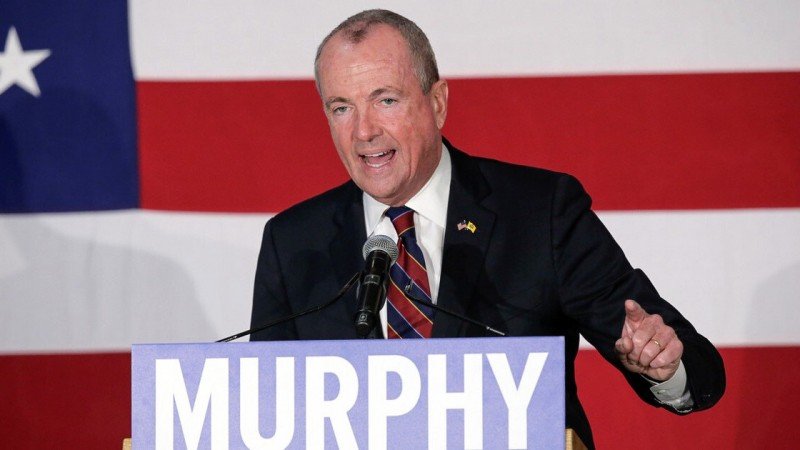A Superior Court judge in New Jersey killed Monday a state law that granted Atlantic City’s casinos tens of millions of dollars in tax breaks, saying the measure “was passed on dubious grounds” and that it “violated the state Constitution.”
Governor Phil Murphy and the state’s legislative leaders took a hit through this ruling, after having fast-tracked the legislation through the Legislature last year. This move also has a direct consequence on the gaming industry, which had argued the bill was needed because it was struggling amid the COVID-19 pandemic.
The controversial law proposed changes to a local taxing program known as PILOT, or “payment in lieu of property taxes”. Since 2016, instead of paying property taxes, each casino has paid a share of an industry-wide assessment that was distributed to Atlantic City, its school district and the county to fund various operations. The number was calculated based on the prior year’s total gaming revenue.

However, last year, the industry pressed for and won a key legislative change to that formula, excluding online gaming from the program, which reduced the gaming companies’ total PILOT liability by about $55 million. The revenue cut was rejected by some as disproportionate, heavily impacting Atlantic City.
The constitutionality of the law was then challenged by a conservative nonprofit group called Liberty and Prosperity 1776, saying the state’s founding document bars preferential tax treatment, report The Press of Atlantic City and ProPublica. The state claimed the new law was exempt from that prohibition because it served a “permissible public purpose”.
We Win In Court! #AtlanticCity, County Again Tax #Casino Sports Bets, Internet Gambling. Also names of the 6 #OceanCity #NJ Board of Ed Members who voted for Gov. #Murphy #woke, age-inappropriate #sexeducation curriculum & against #Parents . @landp1776 https://t.co/uATeyYHLsy
— Seth Grossman (@Grossman4NJ) August 30, 2022
On Monday, Atlantic County Assignment Judge Michael Blee finally sided with the nonprofit, potentially increasing casinos’ tax bills and sending tens of millions of additional dollars into local coffers. “This Court finds that the Amendment was enacted to aid the casino industry and not for a public purpose,” Blee said, as reported by the cited sources.
At the time the bill was passed, some state lawmakers and industry leaders argued that, despite soaring online gaming revenues, the change was necessary to prevent financial loss, with the then-state Senate President Steve Sweeney arguing they were “risking four casinos closing.”
Governor Phil Murphy.
However, the casino industry was already rebounding from the pandemic slump. Even as it claimed fiscal trouble, the industry had its best year in more than a decade, with casinos in Atlantic City reporting $767 million in gross operating revenue in 2021.
Financial reports even show that revenue from in-person gambling has now surpassed pre-pandemic levels. Through the first half of 2022, the city’s nine casinos reported $339 million in gross operating profits, 17% more than the same period last year.
Blee also stated that there is no evidence to suggest that casinos could not meet their PILOT obligations under the Original Act. The legislation was advanced “to aid what was actually a resurging industry,” he claimed.
Seth Grossman of Liberty and Prosperity said Tuesday he was happy with the judge’s decision to vacate the amendments to the PILOT program and leave the original law in place. “To say you’re going to give one industry a break by making everybody else pay more, that’s not helping the economy,” he stated, while adding he expects some “intense litigation” to be waged over the judge’s ruling.
Spokesperson for Gov. Murphy Alyanna Alfaro Post told The Press of Atlantic City and ProPublica on Tuesday that the state plans to appeal Judge Blee’s decision and is “optimistic that it will be overturned”.
This ruling is the second to come down against the PILOT law in recent months, as a judge had previously sided with Atlantic County in a separate lawsuit alleging that the state had “violated the terms of a 2018 consent agreement” that guaranteed the county a certain percentage of the industry’s overall PILOT payment.

This month, Blee awarded millions in damages to Atlantic County and required the state to cover attorney fees and other costs. The state is appealing that decision and, on Monday, it won a stay from the court on the damages while the case works its way through the appeals process.
Atlantic County Executive Dennis Levinson, who urged Murphy to veto the PILOT bill last year, said that this week’s court decision is another signal that state lawmakers should have left the PILOT program alone.
“Had the governor responded to our concerns about the PILOT amendment prior to and after its passage during a lame duck session, four days before Christmas, this could have all been avoided, saving the taxpayers of New Jersey hundreds of thousands of dollars,” Levinson said in a statement Tuesday.















